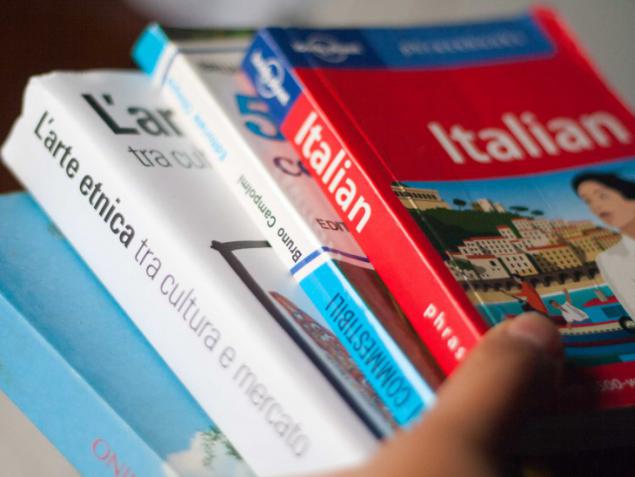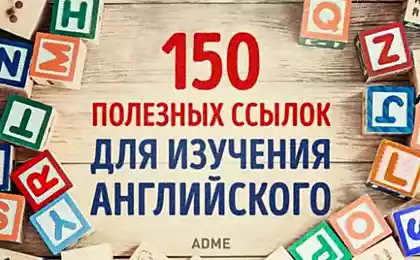673
These 10 facts from someone who knows 16 languages, will be useful to those who want to learn English
Nothing complicated there but the fears and myths in our own heads. Kato Lomb is one of the world's first interpreters, knew 16 languages, and here is a short list of her advice to those who want to succeed in learning a foreign yazyka.
1. need to be engaged in the language every day. If there is insufficient time highlight at least 10-15 minutes for reading or repetition of new phrases. Especially effective to engage in the morning.
2. If you wish to learn a language is weakening too quickly come up with its own algorithm classes. For example, a little busy, and then - a little music, a little break for a walk. But do not throw their studies.
3. Context - our all. Never learn individual words, use context to the maximum. For example, if you remember the expression «strong wind», one of the words will automatically call in the second memory.
4. It is especially useful to write some phrases ready and try to use them as often as possible in the speech.
5. in the mind mentally translating everything that catches your eye - advertising, excerpts of songs, dialogues, titles of newspaper articles. Workout for the brain and is always helpful for memory training.

6. It is useful to memorize short texts and dialogues. But you just have to learn what is right or completely pre-fixed instructor.
7. is already ready to use phrases and idioms are recorded and stored in memory in the first person. For example: «I am only pulling your leg» (I'm just teasing you).
8. any foreign language can not be studied in isolation. Storm the castle needed from all sides: watch movies, read books and newspapers in the original, communicate with native speakers online. (For example, Kato Lomb began to study Russian with "Dead Souls" by Gogol and impressive vocabulary).
9. Do not be afraid of mistakes, afraid of uncorrected errors. Do not leave anything unchecked. It is better to verify twice.
10. Be sure that no matter what, you will learn the language! Be sure to come a time when the number will grow in quality, and the language barrier is broken.
via fit4brain.com/8440

1. need to be engaged in the language every day. If there is insufficient time highlight at least 10-15 minutes for reading or repetition of new phrases. Especially effective to engage in the morning.
2. If you wish to learn a language is weakening too quickly come up with its own algorithm classes. For example, a little busy, and then - a little music, a little break for a walk. But do not throw their studies.
3. Context - our all. Never learn individual words, use context to the maximum. For example, if you remember the expression «strong wind», one of the words will automatically call in the second memory.
4. It is especially useful to write some phrases ready and try to use them as often as possible in the speech.
5. in the mind mentally translating everything that catches your eye - advertising, excerpts of songs, dialogues, titles of newspaper articles. Workout for the brain and is always helpful for memory training.

6. It is useful to memorize short texts and dialogues. But you just have to learn what is right or completely pre-fixed instructor.
7. is already ready to use phrases and idioms are recorded and stored in memory in the first person. For example: «I am only pulling your leg» (I'm just teasing you).
8. any foreign language can not be studied in isolation. Storm the castle needed from all sides: watch movies, read books and newspapers in the original, communicate with native speakers online. (For example, Kato Lomb began to study Russian with "Dead Souls" by Gogol and impressive vocabulary).
9. Do not be afraid of mistakes, afraid of uncorrected errors. Do not leave anything unchecked. It is better to verify twice.
10. Be sure that no matter what, you will learn the language! Be sure to come a time when the number will grow in quality, and the language barrier is broken.
via fit4brain.com/8440
How to destroy the Baku to turn it into a Caucasian oak: Facts in the pics
Do not break the glass as chocolate in his hand: 10 useful facts on the topic of "how to return the former"
























